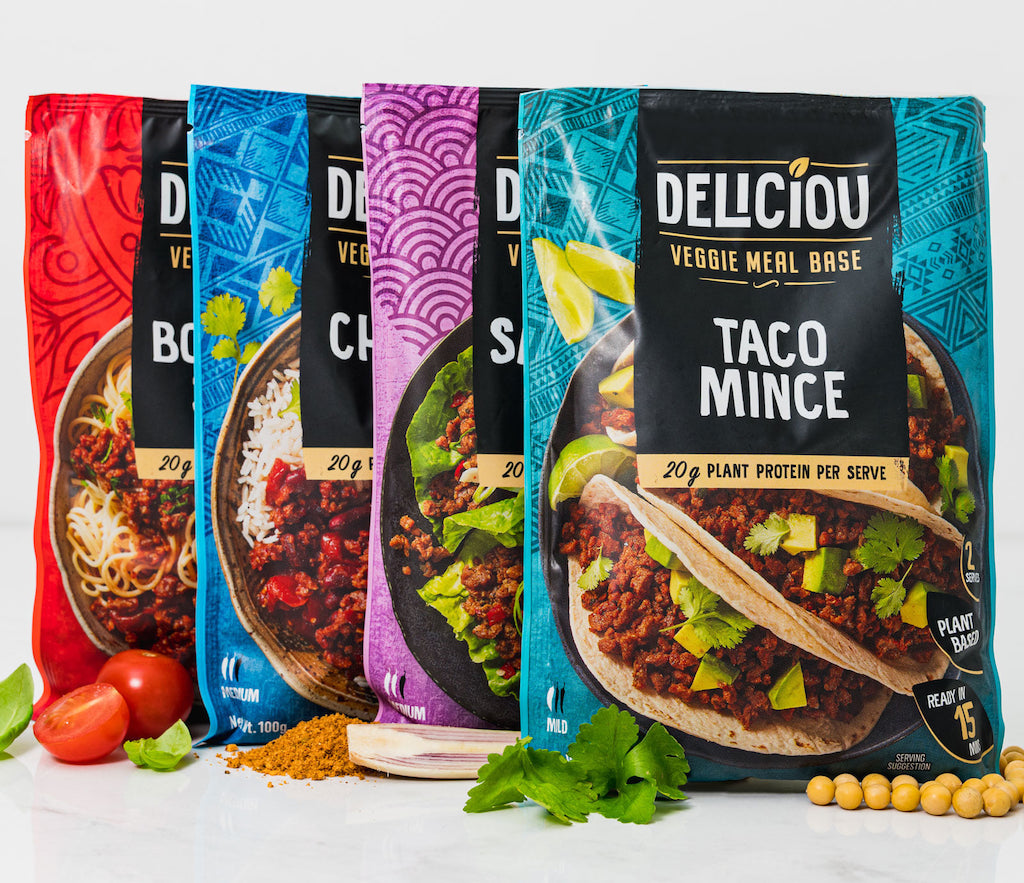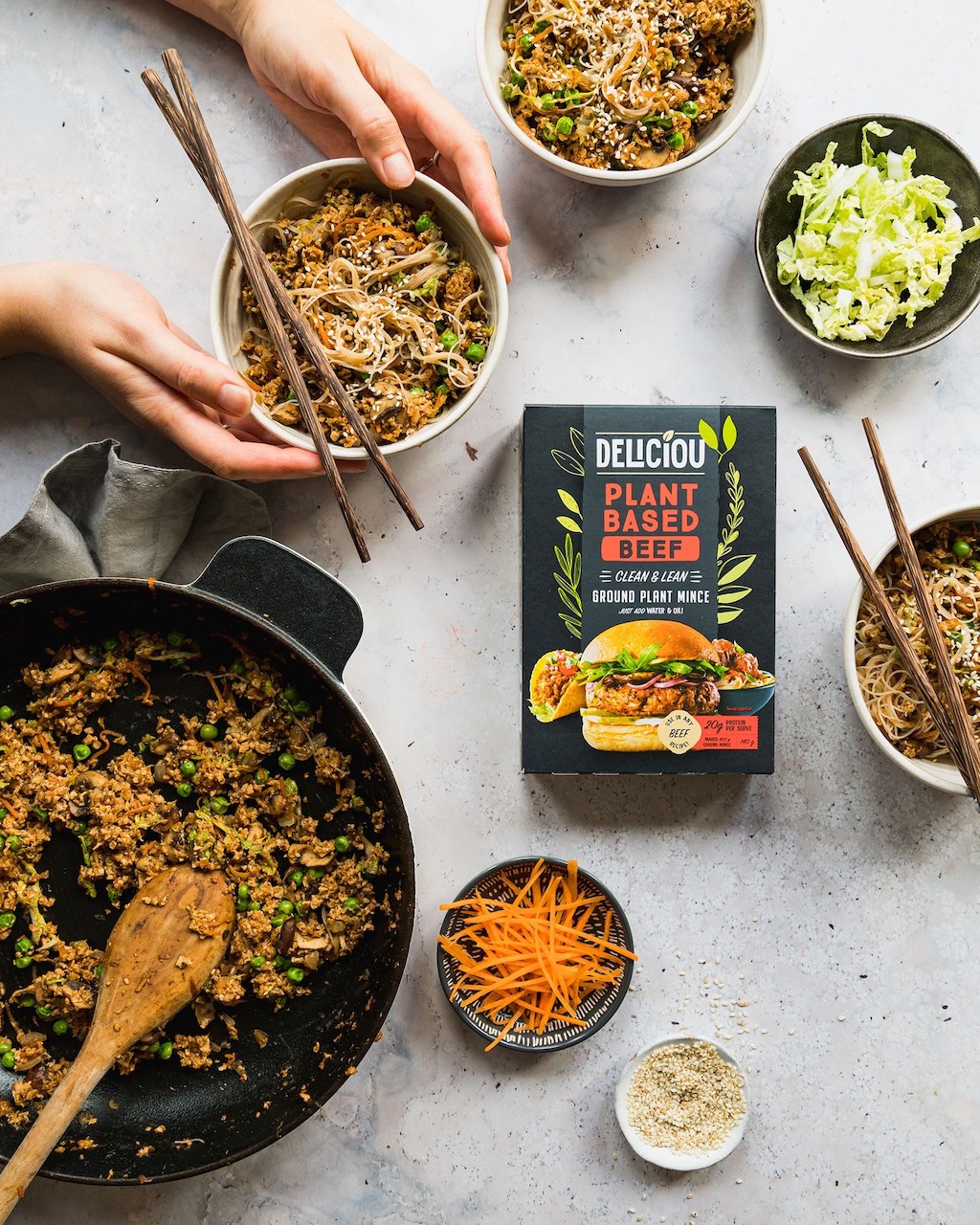4 Mins Read
Deliciou has raised seed funding to continue expanding global distribution of its line of shelf-stable plant-based meat alternatives to Europe, the U.S. and Asia. The round, which makes Deliciou the first Australia-based startup to join U.S. alternative protein venture capital Stray Dog Capital’s portfolio, will also allow Deliciou to ramp up R&D to grow its clean label nutritious vegan product range.
Melbourne-based Deliciou has raised fresh capital in a new seed round, which saw participation from Stray Dog Capital, alongside Adam Levis, the former managing director of McKinsey Australia and New Zealand, ex-managing director of Blackmores Asia Peter Osborne, and co-founders of software firm Aconex Leigh Jasper and Rob Phillpot.
Deliciou says that the proceeds will go towards its continued expansion and investment into developing new products to add to its existing range of nutritious, clean label and shelf-stable plant-based meat alternatives. Founded by Kjetil Hansen in 2015 as a plant-based bacon seasoning brand, which revamped as a fully-fledged food tech in early 2020, Deliciou offers alternatives to chicken, beef, pork and ready-made plant-based meals, sauces and seasonings.
We found that store-bought plant-based meats often had high levels of salt, sugar, and other nasties, which made a lot of people stay away from the category. We wanted to create a healthy alternative.
Kjetil Hansen, Founder, Deliciou

Made with a base of wheat, pea and mung bean protein and natural flavourings, the startup’s soy-free and GMO-free meat alternatives boast 20 grams of protein per serving, is a good source of fibre, iron and vitamin B12, and contains no preservatives, added salt or sugar.
“We found that store-bought plant-based meats often had high levels of salt, sugar, and other nasties, which made a lot of people stay away from the category. We wanted to create a healthy alternative,” said Hansen. “By making the Deliciou plant-based meats from dehydrated plant proteins, we eliminated the need for preservatives, salt, and sugar which made more room for plant proteins and fibre.”
The shelf-stable alternative meat category has been an area of interest for us for some time.
Johnny Ream, Partner, Stray Dog Capital
Rebranding and launching its shelf-stable plant-based meat products for the first time in the midst of the pandemic, Deliciou took an “online-first approach” to deliver to consumers via its website before launching into retail stores like Whole Foods. Its launch also coincided with the fast-growing demand for convenient yet long-lasting food products that could be stored in the pantry, amid supply chain disruptions and social distancing measures.
Other plant-based startups that are beginning to take to convenience-based and nutrition and clean label-focused driven marketing include Longève, a Los Angeles startup who recently launched a line of vegan shelf-stable pea protein beef crumbles.

We have been working on expanding our distribution to the U.S., Europe, and Asia.
Kjetil Hansen, Founder, Deliciou
“The shelf-stable alternative meat category has been an area of interest for us for some time,” commented Johnny Ream, partner at Stray Dog Capital. “Deliciou not only delivers on taste but also in terms of its cleaner nutritional profile—that impressed us.”
Stray Dog Capital CEO Lisa Feria, who spoke to Green Queen Media about the investment in a recent interview, said: “It’s just the level of engineering and innovation is amazing, and not only that, but the reach – you can send this anywhere compared to a frozen or refrigerated product.”
Armed with seed financing, Hansen says plans are already underway to ramp up Deliciou’s digital distribution footprint globally as well as double down on its retail presence.
“When we launched the Deliciou Plant-Based Chicken in early 2020 we sold out in the first week, and since then we have been working on expanding our distribution to the U.S., Europe, and Asia,” explained Hansen. Asia represents the most lucrative opportunity of all, with triple-digit growth predictions for the region, prompting multiple new food techs to enter the race, such as Singapore-based Next Gen’s consumer-facing Tindle vegan chicken brand.

The investment from Stray Dog Capital and others has helped unlock our full potential and allow us to produce more inventory and expand the distribution globally.
Kjetil Hansen, Founder, Deliciou
“We are currently rolling out the full range of plant-based meats into the Whole Foods Market and have several major retailers launching the Deliciou range in the next few months. The investment from Stray Dog Capital and others has helped unlock our full potential and allow us to produce more inventory and expand the distribution globally.”
Deliciou is also poised to capture the fast-growing plant-based market domestically alongside homegrown Aussie players like v2food, Fable Food and Fenn Foods, who are primarily focused on beef alternatives, as well as regional startup Sunfed Foods, hailing from New Zealand but has entered the Australian market with its vegan chicken range.
According to a recently released Food Frontier report, 2020 marked a year of “exponential growth” for plant-based food techs in Australia, with retail sales of plant-based meat jumping 46% year-on-year, while the industry’s manufacturing revenues increased from AU$35 million to AU$70 million (approx. US$27 million to US$54 million).
All images courtesy of Deliciou.




